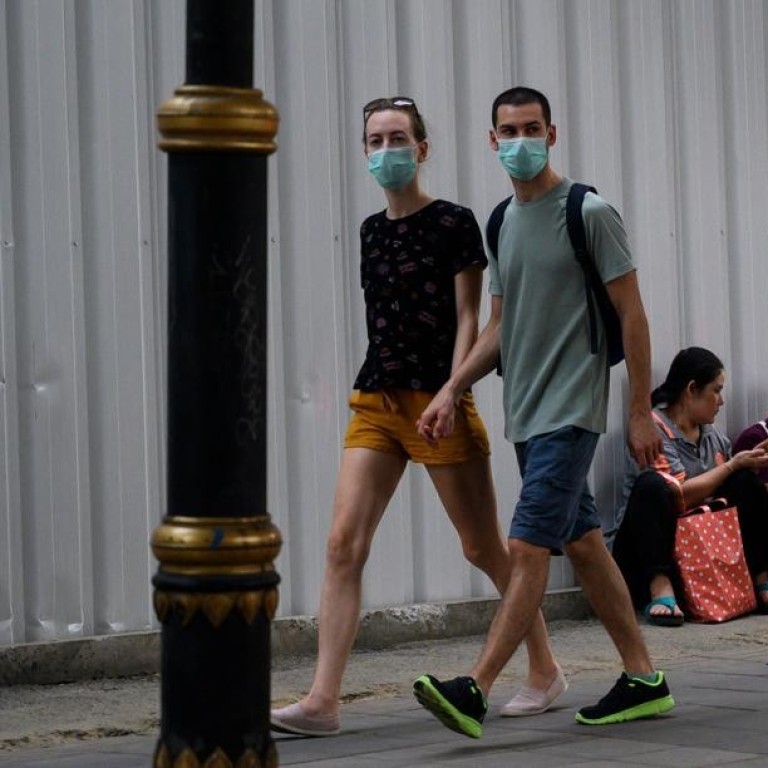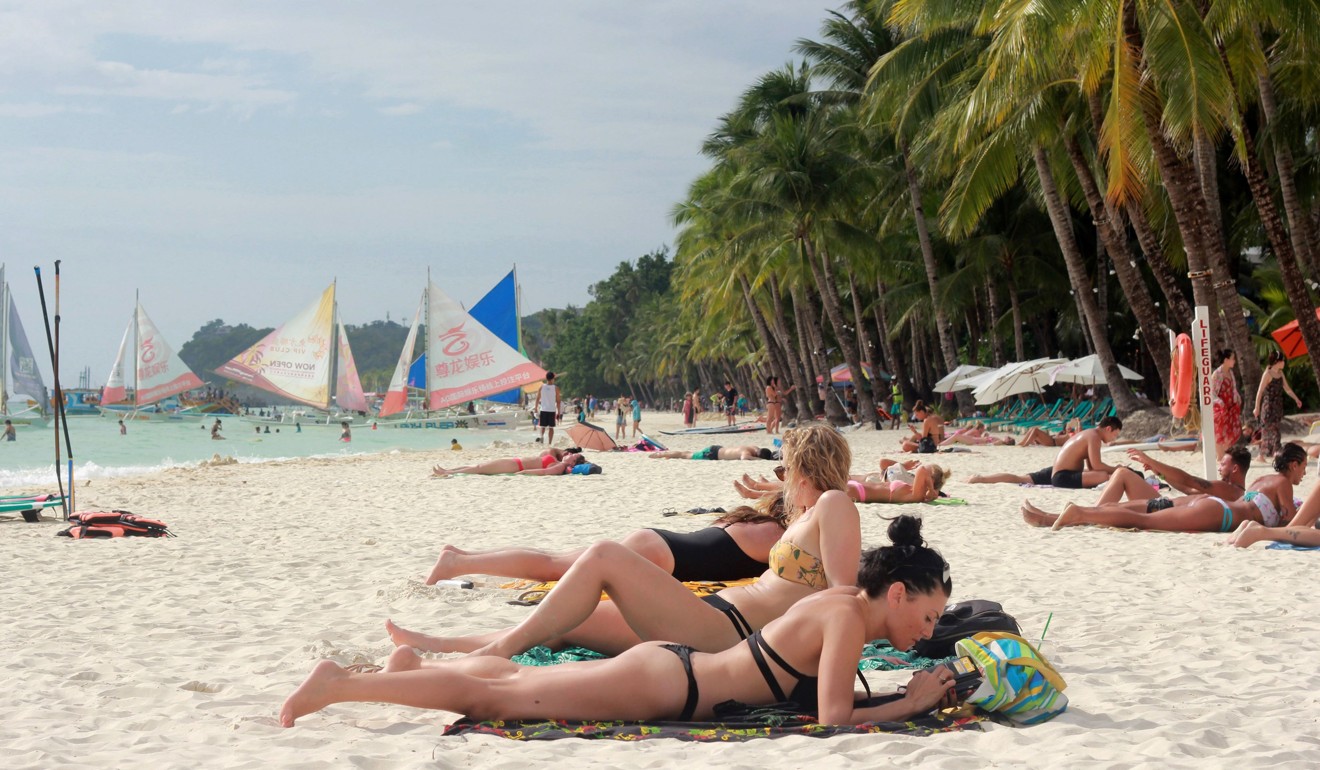
Thailand’s toxic smog: bad for tourism, good for the Department of Royal Rainmaking
- Poor air quality, caused by weather patterns, vehicle emissions and the burning of crops and rubbish, threatens to affect visitor numbers
- Tourists urged to wear respirator masks as ‘haze’ shows no sign of clearing
Air quality is to Hongkongers what weather is to Britons: something about which to endlessly gripe until those rare occasions when the haze lifts and the trinity of chimneys that rises from Lamma Power Station is visible in crystalline clarity. But we are not alone. Residents of Beijing, New Delhi and Los Angeles understand our grief, as do those living or holidaying in Thailand’s capital, which has been so choked by a cloud of toxic smog that its retailers have almost run out of air purifiers, according to a Bloomberg report.
The “haze”, as it is often euphemistically named, descended on Bangkok in December. A perfect storm of high air pressure, wind factors, vehicle emissions, construction dust, coal-fired power plants spewings and the burning of crops and rubbish, the pollution registered 182 on the World Air Quality Index (AQI) at its worst, on January 14.
Bangkok’s smog crisis forces 437 schools to close
According to the United States’ Environmental Protection Agency, a reading below 50 indicates optimum air quality, 101 or more makes it unhealthy for sensitive groups such as young children and the elderly, while anything over 151 is not good news for anyone. (In contrast, the scale set by Hong Kong’s Environmental Protection Department is a somewhat arcane one to 10, where 4 places people at a moderate risk and 7 or higher is red alert.)
On January 15, the Tourism Authority of Thailand advised visitors to Bangkok to take “all necessary precautions” – although it wasn’t explicit what those might be – adding that the Department of Royal Rainmaking and Agricultural Aviation (yes, it’s a thing) would attempt to make it artificially rain to clear the air.
A study by Kasikorn Research Center, an affiliate of Thai banking group Kasikornbank, estimates that the economic losses for Bangkok and its surrounding areas could reach 2.6 billion baht (US$83 million) because of the smog’s impact on the health and tourism industries.
Citing Kasikorn’s findings, a January 16 report in the Bangkok Post stated that, “Foreign tourists are already shunning travel to Bangkok and shifting to other destinations in Thailand because of the toxic haze, but they could skip the country entirely if the problem lingers.”
As yet, there is no published evidence to suggest that international arrivals have been affected, however, another casualty of the unhealthy air could be the country’s reputation as a medical tourism destination. Who wants to get veneers only to have to hide those new gnashers behind a respirator mask? Come to think of it, could Thailand live up to its Land of Smiles branding if the beams were masked?
Despite air quality in Bangkok having improved, internet commentators have been quick to note that the underlying causes for that 182 remain unaddressed, with no restrictions on car use in the capital, thousands of vehicles belching black smoke still on the road, and sugar cane stalks and rubbish fires burning in the northern provinces, causing unhealthy levels of above 180 at several weather stations surrounding Chiang Mai in recent days. On February 11, English-language daily The Nation reported that conditions were set to worsen in Bangkok in the week ahead.
At the time of writing, Guangzhou and Taipei are both in the green, registering 17 and 25, respectively.
British tourist jailed for six months for slapping Bali immigration officer
Per the adage that one should pick one’s battles, it is not advisable to engage in an altercation with an immigration official. British tourist Auj-e Taqaddas, 43, learned this the hard way, when she slapped an Indonesian immigration officer, after having missed her flight from Bali on account of a long-expired tourist visa.
Philippines breaks tourism record for 2018, despite Boracay closure

Speaking to news website Rappler, Tourism Secretary Bernadette Romulo Puyat said, “The challenging act of closing down Boracay – a flagship destination, the country’s top sun-and-beach destination – has evidently become a blessing in disguise for secondary tourism spots to have a share of the limelight and attention they truly deserve.”
Whether these alternate destinations will continue to benefit now that Boracay is once again open for business remains to be seen.

